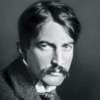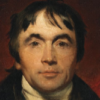You may be deceived if you trust too much, but you will live in torment if you don’t trust enough.
Frank Crane (1861-1929) American clergyman, journalist
(Attributed)
Love is a fire. But whether it is going to warm your hearth or burn down your house, you can never tell.
Joan Crawford (1908-1977) American actress
(Attributed)
If the automobile had followed the same development cycle as the computer, a Rolls-Royce would today cost $100, get a million miles per gallon, and explode once a year, killing everyone inside.
Robert X. Cringely (contemp.) American technology columnist [pseud. for Mark Stephens and others]
“Notes from the Field,” InfoWorld (6 Mar 1989)
Every thing secret degenerates, even the administration of justice; nothing is safe that does not show how it can bear discussion and publicity.
John Dalberg, Lord Acton (1834-1902) British historian, politician, writer
Letter (1861-01-23) to Richard Simpson
(Source)
There are two things which cannot be attacked in front: ignorance and narrow-mindedness. They can only be shaken by the simple development of the contrary qualities. They will not bear discussion.
John Dalberg, Lord Acton (1834-1902) British historian, politician, writer
Letter (1861-01-23) to Richard Simpson
(Source)
EGON: There’s something very important I forgot to tell you.
VENKMAN: What?
EGON: Don’t cross the streams.
VENKMAN: Why?
EGON: It would be bad.
VENKMAN: I’m fuzzy on the whole good/bad thing. What do you mean “bad”?
EGON: Try to imagine all life as you know it stopping instantaneously and every molecule in your body exploding at the speed of light.
RAY: Total protonic reversal.
VENKMAN: That’s bad. Okay. All right, important safety tip. Thanks, Egon.
I don’t want to get to the end of my life and find that I lived just the length of it. I want to have lived the width of it as well.
While I have an almost insatiable craving for knowledge, I believe death to be the final and perhaps greatest teacher — the one that provides the key to the ultimate questions life has never answered. In my darkest hours I have been consoled by the thought that death at least is a payment for the answer of life’s haunting secrets.
As a confirmed melancholic, I can testify that the best and maybe only antidote for melancholia is action. However, like most melancholics, I suffer also from sloth.
Edward Abbey (1927-1989) American anarchist, writer, environmentalist
A Voice Crying in the Wilderness, ch. 4, “Life and Death and All That” (1989)
(Source)
When I told the people of Northern Ireland that I was an atheist, a woman in the audience stood up and said, ‘Yes, but is it the God of the Catholics or the God of the Protestants in whom you don’t believe?’
What is life? It is the flash of a firefly in the night. It is the breath of a buffalo in the wintertime. It is the little shadow which runs across the grass and loses itself in the sunset.
Crowfoot (1821-1890) Blackfoot warrior, statesman [Crow Big Foot]
(1890)
last words; http://www.telusplanet.net/public/mtoll/crow.htm
The most wasted of all days is the one without laughter.
e e cummings (1894-1962) American poet and painter [Edward Estlin Cummings]
(Attributed)
See also Chamfort.
It is better to wear out than to rust out.
Richard Cumberland (1632-1718) English philosopher and cleric (Bishop of Peterborough)
(Attributed)
(Source)
Quoted in G. Horne, "Sermon on the Duty of Contending for the Truth" (1786).
A friend is one who knows us, but loves us anyway.
Jerome Cummings (d. 1997) American Catholic priest
(Attributed)
Friends are those rare people who ask how we are and then wait to hear the answer.
Ed Cunningham (contemp.)
(Attributed)
Fifteen hundred years ago, everybody “knew” that the earth was the center of the universe. Five hundred years ago, everybody “knew” that the earth was flat. And 15 minutes ago, you “knew” that humans were alone on this planet. Imagine what you’ll “know” tomorrow.
Lowell Cunningham (b. 1959) American writer
Men in Black (1997)
(screenplay with Ed Sullivan)
It is the common fate of the indolent to see their rights become a prey to the active. The condition upon which God hath given liberty to man is eternal vigilance; which condition if he break, servitude is at once the consequence of his crime and the punishment of his guilt.
There are two kinds of people who never amount to much: those who cannot do what they are told, and those who can do nothing else.
Cyrus Curtis (1850-1933) American publisher
(Attributed)
BLACKADDER: I, on the other hand, have a degree from the University of Life, a diploma from the School of Hard Knocks, and three gold stars from the Kindergarten of Getting the Shit Kicked Out of Me.
EBENEZER BLACKADDER: HA! Got him with my subtle plan!
BALDRICK: I can’t see any subtle plan!
EBENEZER BLACKADDER: Baldrick, you wouldn’t see a subtle plan if it painted itself purple and danced naked on top of a harpsichord, singing “Subtle plans are here again!”
This is my simple religion. There is no need for temples; no need for complicated philosophy. Our own brain, our own heart is our temple; the philosophy is kindness.
If someone has a gun and is trying to kill you, it would be reasonable to shoot back with your own gun.
I have observed that religious practice is not a precondition either of ethical conduct or of happiness itself. I have also suggested that, whether a person practices religion or not, the spiritual qualities of love and compassion, patience, tolerance, forgiveness, humility and so on are indispensable.
It’s been a rough day. I got up this morning
Rodney Dangerfield (1922-2004) American comedian, actor [b. Jacob Cohen]
(Attributed)
These miserable ways
The forlorn spirits endure of those who spent
Life without infamy and without praise.
They are mingled with that caitiff rabblement
Of the angels, who rebelled not, yet avowed
To God no loyalty, on themselves intent.
Heaven chased them forth, lest, being there, they cloud
Its beauty, and the deep Hell refuses them,
For, beside these, the wicked might be proud.[Questo misero modo
tegnon l’anime triste di coloro
che visser sanza ’nfamia e sanza lodo.
Mischiate sono a quel cattivo coro
de li angeli che non furon ribelli
né fur fedeli a Dio, ma per sé fuoro.
Caccianli i ciel per non esser men belli,
né lo profondo inferno li riceve,
ch’alcuna gloria i rei avrebber d’elli.]Dante Alighieri (1265-1321) Italian poet
The Divine Comedy [Divina Commedia], Book 1 “Inferno,” Canto 3, l. 34ff (3.34-42) [Virgil] (1309) [tr. Binyon (1943)]
(Source)
This passage is likely the basis for John F. Kennedy's famous paraphrase, which he credited to Dante:
The hottest places in hell are reserved for those who in a period of moral crisis maintain their neutrality.
That was originally written (and ascribed to Dante) by Henry Powell Spring in 1944. JFK used it multiple times, including in a speech as President in Germany a few days before his famous "Ich bin ein Berliner" speech. (More info on this paraphrase here.)
Dante (and, thus, Dante's cosmos) judges based on action. Thus he ranks those who would not act, pusillanimous neutrals both earthly and heavenly, as worse than even those who have acted for evil ends, and the first whose punishment we get to see. Though they committed no evil acts, they also failed to commit good ones, allowing evil to flourish. Even the tortured denizens of Hell would consider themselves their betters, thus their not being allowed in that infernal realm. Rejecting Heaven and Hell, they are blocked from either. While undergoing some corporal punishment, far worse is that, having stood only for themselves, they are robbed of their identity, nameless for all eternity (ll. 46-51).
Compare this sentiment to Revelation 3:15-16:
I know thy works, that thou art neither cold nor hot: I would thou wert cold or hot. So then because thou art lukewarm, and neither cold nor hot, I will spue thee out of my mouth.
(Source (Italian)). Alternate translations:
These doleful Beings, he reply'd, have liv'd
In Indolence, without or blame or praise.
Angels are mix'd with this unhappy band,
Who neither Rebels, nor yet faithful were
To God, but liv'd sequestered by themselves.
These Heavn' discarded for being too remiss,
Nor did e'en Hell this lukewarm herd receive;
That Favour might not to the damnn'd be shewn.
[tr. Rogers (1782), ll. 30-37]
Behold th' ignoble sons of sloth and shame,
Who scorn'd alike the voice of praise and blame,
Nor dreaded punishment, nor sought reward.
Mingled they march with that degen'rate brood,
Who when the Rebel of the sky withstood
His sov'reign Lord, aloof their squadrons held:
Viewing with selfish eye the fierce debate,
Till, from the confines of the heav'nly state,
Trembling they saw the rebel host expell'd.
Nor bore the victor-Lord the alien race,
But straight, the foul pollution to efface,
Hurl'd them indignant from the bounds of light:
This frontier then the dastard crew receiv'd,
Nor deeply damn'd, altho' of bliss bereav'd,
And doom'd to wander on the verge of night';
They suffer here, lest yon' more guilty train
of crimes unequal, doom'd to equal pain,
Blaspheming Heavn'n, should make their impious boast.
[tr. Boyd (1802), st. 8-11]
This miserable fate
Suffer the wretched souls of those, who liv'd
Without or praise or blame, with that ill band
Of angels mix'd, who nor rebellious prov'd
Nor yet were true to God, but for themselves
Were only. From his bounds Heaven drove them forth,
Not to impair his lustre, nor the depth
Of Hell receives them, lest th' accursed tribe
Should glory thence with exultation vain.
[tr. Cary (1814)]
The miserable crew
Of souls now lingers in this piteous mood,
To whom, alive, nor blame nor praise was due.
Commingled are they with that caitiff brood
Of angel natures, which nor dared rebel,
Nor yet kept faith, but selfish ends pursued.
Them, not to be less fair, must heaven expel,
Nor the abyss receive, lest their dispraise
Redound for glory to the sons of hell.
[tr. Dayman (1843)]
This miserable mode the dreary souls of those sustain, who lived without blame, and without praise.
They are mixed with that caitiff choire of the angels, who were not rebellious nor were faithful to God; but were for themselves.
Heaven chased them forth to keep its beauty from impair; and deep Hell receives them not, for the wicked wouild have some glory over them.
[tr. Carlyle (1849)]
This miserable lot
Possess the souls of those whose living days
Passed not with infamy, nor yet with praise.
Immingled they are in the caitiff choir
Of neutral angels, for themselves that stood --
Neither rebelled nor loyal were to God.
The heavens have chased them, for they'd sully heaven --
The infernal depths receive them not, because
No glory can the wicked have by those.
[tr. Bannerman (1850)]
This state of misery is held
By the sad spirits of those, who in their lives
Knew neither act of infamy nor praise.
And they are mingl'd with the wicked choir
Of Angels who, not rebels to their God,
Were yet not faithful, knowing but themselves;
Cast forth that Heav'n's pure beauty be not stain'd,
nto Hell's gloomy depths permitted not
Lest they be cause of glory to the lost.
[tr. Johnston (1867)]
This miserable mode
Maintain the melancholy souls of those
Who lived withouten infamy or praise.
Commingled are they with that caitiff choir
Of Angels, who have not rebellious been,
Nor faithful were to God, but were for self.
The heavens expelled them, not to be less fair;
Nor them the nethermore abyss receives,
For glory none the damned would have from them.
[tr. Longfellow (1867)]
This wretched fashion keep the sorry souls of those who lived without infamy and without praise. They are mingled with that caitiff band of the angels who were not rebel, nor were faithful to God, but were for themselves. Heaven chased them, that it should not be less fair, nor does the deep hell receive them, since the damned would have some boasting of them.
[tr. Butler (1885)]
After this fashion drear
These wretched souls their after-life pursue
Who both from infamy and praise lived clear.
Mingled they are with that contemptible crew
Of angels who would not rebellion dare,
Not faithful Godwards, to themselves but true.
Heaven drove them out, lest it might be less fair,
Neither received them deepest Hell's domain,
That from them, evil should no glory share.
[tr. Minchin (1885)]
This miserable measure the wretched souls maintain of those who lived without infamy and without praise. Mingled are they with that caitiff choir of the angels, who were not rebels, nor were faithful to God, but were for themselves. The heavens chased them out in order to be not less beautiful, nor doth the depth of Hell receive them, because the damned would have some glory from them.
[tr. Norton (1892)]
Such hapless state the joyless souls of those sustain, who lived their lives untouched by either infamy or praise. They are huddled together with that base crew of angels who rose not in revolt, nor kept their faith with God, but were for self alone. Heaven drave them out that its brightness might remain undimmed; nor doth the depth of Hell receive them, for the damned would glory over them.
[tr. Sullivan (1893)]
This miserable condition
Keeps the sad souls of those who in their lifetime
Were without infamy and without praises;
Commingled are they with that caitiff chorus
Of angels who aforetime were not rebels.
Nor faithful were to God, but stood as neutral.
Heaven drave them forth lest they should mar its beauty;
Nor doth the lower depth of hell receive them,
Since that from them the damned would gain some glory.
[tr. Griffith (1908)]
This miserable state is borne by the wretched souls of those who lived without disgrace and without praise. They are mixed with that caitiff choir of the angels who were not rebels, nor faithful to God, but were for themselves. The heavens drove them forth, not to be less fair, and the depth of Hell does not receive them, lest the wicked have some glory over them.
[tr. Sinclair (1939)]
This dismal company
Of wretched spirits thus find their guerdon due
Whose lives knew neither praise nor infamy;
They're mingled with that caitiff angel-crew
Who against God rebelled not, nor to Him
Were faithful, but to self alone were true;
Heaven cast them forth -- their presence there would dim
The light; deep Hell rejects so base a herd,
Lest sin should boast itself because of them.
[tr. Sayers (1949)]
These are the nearly soulless
whose lives concluded neither blame nor praise.
They are mixed here with that despicable corps
of angels who were neither for God nor Satan,
but only for themselves. The High Creator
scourged them from Heaven for its perfect beauty,
and Hell will not receive them since the wicked
might feel some glory over them.
[tr. Ciardi (1954), ll. 32-39]
Such is the miserable condition of the sorry souls of those who lived without infamy and without praise. They are mingled with that base band of angels who were neither rebellious nor faithful to God, but stood apart. The heavens drive them out, so as not to be less beautiful; and deep Hell does not receive them, lest the wicked have some glory over them.
[tr. Singleton (1970)]
This wretched state of being
is the fate of those sad souls who lived a life
but lived it with no blame and with no praise.
They are mixed with that repulsive choir of angels
neither faithful nor unfaithful to their God,
but undecided in their neutrality.
Heaven, to keep its beauty, cast them out,
but even hell itself would not receive them
for fear the wicked there might glory over them.
[tr. Musa (1971)]
This miserable way
is taken by the sorry souls of those
who lived without disgrace and without praise.
They now commingle with the coward angels,
the company of those who were not rebels
nor faithful to their God, but stood apart.
The heavens, that their beauty not be lessened,
have cast them out, nor will deep Hell receive them --
even the wicked cannot glory in them.
[tr. Mandelbaum (1980)]
That is the manner of existence
Endured by the sad souls of those who lived
Without occasion for infamy or praise.
They are mixed with that abject squadron of angels
Who did not think it worth their while to rebel
Or to be faithful to God, but were for themselves.
Heaven chased them out, so as not to become less beautiful,
And the depths of hell also rejected them,
Lest the evil might find occasion to glory over them.
[tr. Sisson (1981)]
This is the sorrowful state of souls unsure,
Whose lives earned neither honor nor bad fame.
And they are mingled with angels of that base sort
Who, neither rebellious to God nor faithful to Him,
Chose neither side, but kept themselves apart --
Now Heaven expels them, not to mar its splendor,
And Hell rejects them, lest the wicked of heart
Take glory over them.
[tr. Pinsky (1994), ll. 30-37]
This wretched measure is kept by the miserable souls who lived without infamy and without praise.
They are mixed with that cowardly chorus of angels who were not rebels yet were not faithful to God, but were for themselves.
The heavens reject them so as not to be less beautiful, nor does deep Hell receive them, for the wicked would have some glory over them.
[tr. Durling (1996)]
This is the miserable mode in which those exist, who lived without praise, without blame. They are mixed in with the despised choir of angels, those not rebellious, not faithful to God, but for themselves. Heaven drove them out, to maintain its beauty, and deep Hell does not accept them, lest the evil have glory over them.
[tr. Kline (2002)]
This awful habitat is given
over to the "so-so souls" who, when they lived,
were neither cold nor hot.
They share this region with a retinue
of neutral angels, those who neither were for God
nor Satan, but for you-know-who.
To keep its reputation from impair,
Heaven expelled them; they were barred from Hell,
in case in case the wicked thought themselves more fair."
[tr. Carson (2002)]
This baleful condition is one, he said
that grips those souls whose lives, contemptibly,
were void alike of honor and ill fame.
These all co-mingle with a noisome choir
of angels who -- not rebels, yet not true
to God -- existed for themselves alone.
To keep their beauty whole, the Heavens spurned them.
Nor would the depths of Hell receive them in,
lest truly wicked souls boast over them.
[tr. Kirkpatrick (2006)]
This miserable state is borne
by the wretched souls of those who lived
without disgrace yet without praise.
They intermingle with that wicked band
of angels, not rebellious and not faithful
to God, who held themselves apart.
Loath to impair its beauty, Heaven casts them out,
and the depth of Hell does not receive them
lest on their account the evil angels gloat.
[tr. Hollander/Hollander (2007)]
This is how the vilest,
Sorriest souls have lived their lives,
Neither disgraced nor ever once admired.
Mixed among them are souls thrown from on high,
Angels who neither joined the Devil's rebellion
Nor stood with God. They simply stayed to the side.
Heaven rejected them as ugly, and Hell
Refused to let them in its deeper parts,
Outshining demons if the Devil let them dwell there.
[tr. Raffel (2010)]
Their pride to have no prejudice,
Seeking no praise for fear of taking blame,
They were for nothing, nor were they against:
They made no waves and so they made no name.
Now their neutrality is recompense,
For here there is no cautious holding back:
Voices once circumspect are now incensed
And raise to make each other's eardrums crack
Thus they are joined to that self-seeking squad
Of angels fitted neither to rebel
Against, nor put their heartfelt faith in, God --
Hunted from Heaven and locked out of Hell
Because the perfect sky would brook no blur,
And in the lower depths the rebels prized
The glory won from being what they were,
Not the nonentities that they despised.
[tr. James (2013), ll. 44-59]
Keep close behind me. Let them say their say.
Stand straight, a mighty tower unwavering,
its height unshaken by such breaths of wind.[Vien dietro a me, e lascia dir le genti:
sta come torre ferma, che non crolla
già mai la cima per soffiar di venti.]Dante Alighieri (1265-1321) Italian poet
The Divine Comedy [Divina Commedia], Book 2 “Purgatorio,” Canto 5, l. 13ff (5.13-15) [Virgil] (1314) [tr. Kirkpatrick (2007)]
(Source)
Virgil scolding Dante for slowing down when other spirits are pointing and murmuring about him having a shadow, unlike them.
(Source (Italian)). Alternate translations:
Can murmurs move you? Let them whisper on,
And bid your Reason firmly keep its throne,
and o'er the fortress of the mind preside.
[tr. Boyd (1802), st. 2]
Come after me, and to their babblings leave
The crowd. Be as a tower, that, firmly set,
Shakes not its top for any blast that blows!
[tr. Cary (1814)]
Come thou behind me, let the people talk;
Stand like a steadfast tower, whose lofty crest
Ne'er quaked obedient to the rocking blast.
[tr. Bannerman (1850)]
Come after me, and let the people talk;
Stand like a steadfast tower, that never wags
Its top for all the blowing of the winds;
[tr. Longfellow (1867)]
Come behind me, and let the folk talk; stand like a firm tower which never shakes its top for blast of winds.
[tr. Butler (1885)]
Follow thou me, and let the people talk:
Stand like a solid tower, that doth not bow
Its crest at any time, though wild winds stalk.
[tr. Minchin (1885)]
Come after me, and let the people talk. Stand as a tower firm, that never wags its top for blowing of the winds.
[tr. Norton (1892)]
Follow me and let the people talk; stand thou as a firm tower which never shakes its summit for blast of winds.
[tr. Okey (1901)]
Come after me and let the people talk. Stand like a firm tower that never shakes its top for blast of wind.
[tr. Sinclair (1939)]
Follow behind me and let them talk their fill:
Stand like a tower whose summit never shakes
For the wind's blowing, and stays immovable.
[tr. Binyon (1943)]
Follow thou me, and let the people chatter;
Stand as a tower stands firm in time of trouble,
Nor bends its head, though winds may bawl and batter.
[tr. Sayers (1955)]
Follow my steps, though all such whisper of you:
be as a tower of stone, its lofty crown
unswayed by anything the winds may do.
[tr. Ciardi (1961)]
Follow me and let the people talk.
Stand as a firm tower which never
shakes its summit for blast of winds.
[tr. Singleton (1973)]
Keep up with me and let the people talk!
Be like a solid tower whose brave height
remains unmoved by all the winds that blow.
[tr. Musa (1981)]
Come on behind me, let those people talk:
Stand like a solid tower which does not shake
Its top whatever winds are blowing on it.
[tr. Sisson (1981)]
Come, follow me, and let these people talk:
stand like a sturdy tower that does not shake
its summit though the winds may blast.
[tr. Mandelbaum (1982)]
Come after me, and let the people talk:
be like a strong tower whose top never falls,
however hard the winds may blow.
[tr. Durling (2003)]
Follow me close behind, and let the people talk: stand like a steady tower, that never shakes at the top, in the blasts of wind.
[tr. Kline (2002)]
Just follow me and let the people talk.
Why can't you be like a sturdy tower
that does not tremble in the fiercest wind.
[tr. Hollander/Hollander (2007)]
Just follow me and let the people talk:
Stand steady as a tower, which doesn't shake
Its top whenever the winds decide to blow.
[tr. Raffel (2010)]
Karl Marx paraphrased the first line of this tercet in the conclusion of his Author's Preface to the First Edition of Das Kapital (1867), crediting Dante:
Every opinion based on scientific criticism I welcome. As to the prejudices of so-called public opinion, to which I have never made concessions, now as aforetime the maxim of the great Florentine is mine: "Segui il tuo corso, e lascia dir le genti."
Which reads something like "Follow your own course, and let the people talk." The phrase is given in Italian even in the original German edition.





















